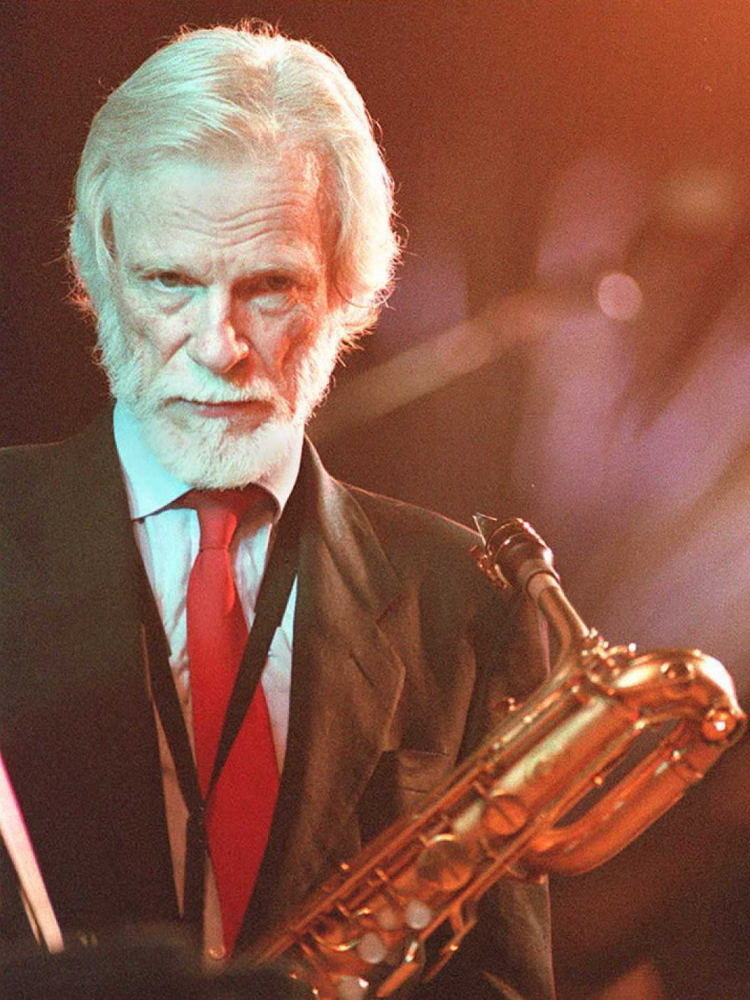Gerald Joseph “Gerry” Mulligan, born April 6, 1927 and died January 20, 1996 was an American jazz baritone saxophonist. He was also a composer and arranger. Mulligan began his musical journey on the piano, before learning clarinet and other saxophones. His first reputation was as an arranger. He began his career as an arranger in 1944, writing charts for Johnny Warrington’s radio station. Soon, he was contributing to the books of Tommy Tucker (and George Paxton) In 1946, he moved to New York and became a staff arranger for Gene Krupa’s Orchestra. His most famous chart was “Disc Jockey Jump”. Krupa only played alto for him a few times, and the same situation was present when he was playing with Claude Thornhill back in 1948. Gerry Mulligan recorded his first baritone work with Miles Davis’ Birth of the Cool noet (1948-50). However, his arrangements (“Godchild,” Darn That Dream”, and three of his originals (“Jeru,” Rocker,” and “Venus de Milo”) were far more important than his solos. Mulligan spent most of 1949 writing for Elliot Lawrence’s orchestra, and also playing in the anonymous saxophone section. He was only recognized for his baritone work in 1951. Mulligan recorded for Prestige with his own nonet, which displayed a well-known sound. He then traveled to Los Angeles and wrote arrangements for Stan Kenton, including “Youngblood”, “Swing House” (and “Walking Shoes”)), and worked at the Lighthouse before gaining a regular Monday night gig at the Haig. Mulligan discovered that soloing was more fun than playing with a piano. Soon, he began to jam with Chet Baker, a trumpeter. Their magical relationship was soon featured in their piano-less quartet. In 1952, the group was a success and turned Baker and Mulligan into celebrities. Mulligan was arrested for drug possession and was forced to end the quartet. However, Mulligan was freed from prison in 1954 and began a new musical partnership. It was also successful. Jon Eardley, a trumpeter, and Zoot Sims, a tenor, made the group occasionally a sextet. Art Farmer was also featured in Mulligan’s Quartet in 1958. Mulligan was a flexible player who respected other styles and went to great lengths to record with the great musicians he loved. He recorded “Prima bara dubla” with Harry Carney at the 1958 Newport Jazz Festival, while being supported by the Duke Ellington Orchestra. Later, he recorded separate albums during 1957-60 with Thelonious Mok, Stan Getz and Ben Webster. Mulligan appeared on the 1958 Sound of Jazz TV special and in The Subterraneans. Mulligan was the leader of his Concert Jazz Band from 1960 to 1964, which allowed him to play baritone and sometimes double as a pianist. Brookmeyer, Sims and Clark Terry were among the orchestra’s members at times. After the breakup of the big band, Mulligan was less active but he toured extensively in the 1970s with the Dave Brubeck Quintet (1968-72), led a mid-1970s sextet with vibraphonist Dave Samuels and recorded a 1986 record with Scott Hamilton. He toured the globe with his “no-name” band and led the “Rebirth of the Cool Band”, which performed and recorded remakes of Miles Davis Nonet songs. Gerry Mulligan, up until the end was always keen to play. Gerry Mulligan, who died in Darien, CT on January 20, 1996, was a composer. Mulligan’s compositions included “Walkin’ Shoes”, “Line for Lyons,” and “Bark for Barksdale.” “Utter Chaos,” as well as “Bernie’s Tune,” Blueport,” and “Song for Strayhorn.” He also sang “I Never Was a Young Man” many times. Through the years, he recorded extensively for labels such as Prestige and Pacific Jazz, Capitol, Vogue. United Artists. Philips. Limelight.
